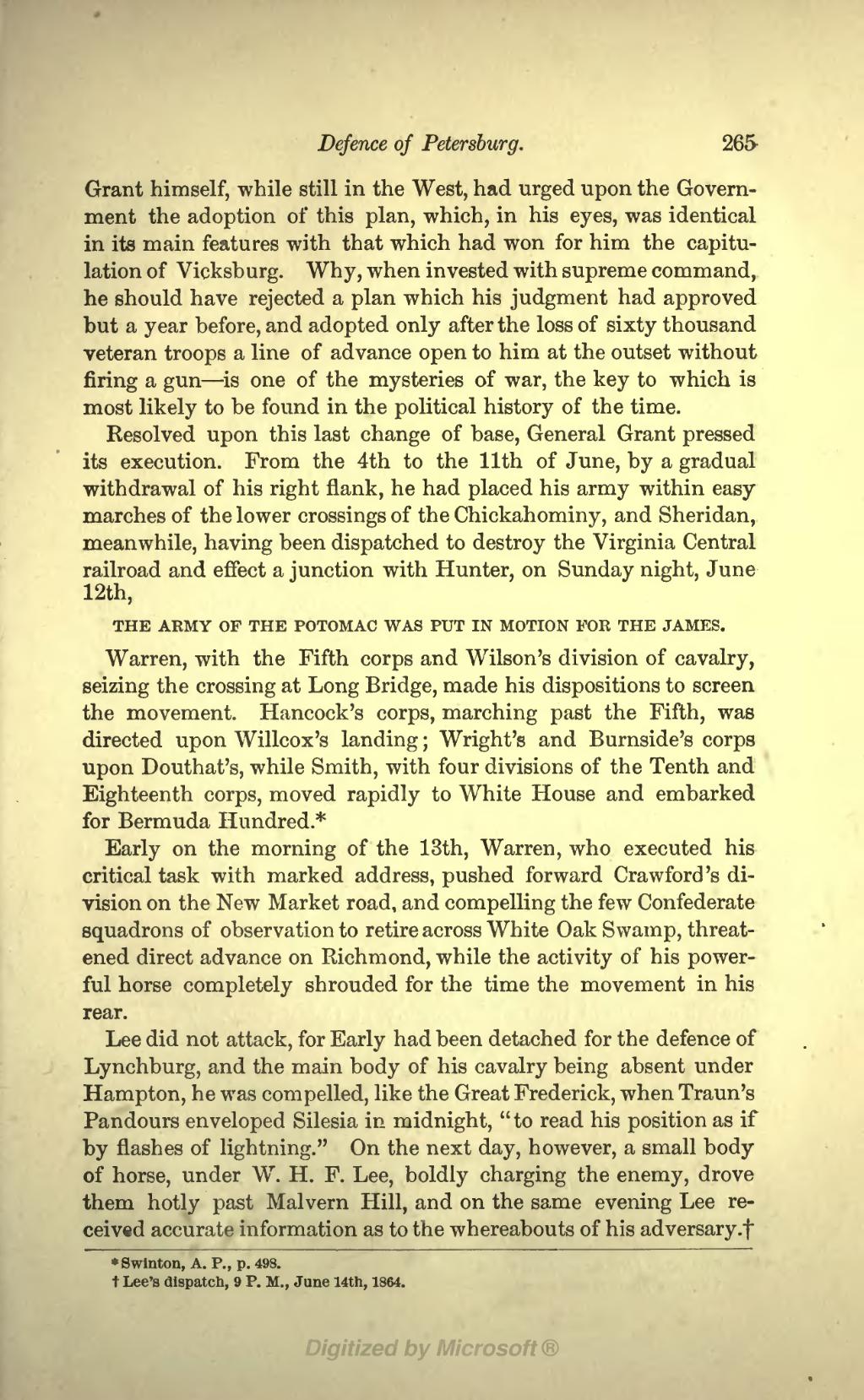Grant himself, while still in the West, had urged upon the Government the adoption of this plan, which, in his eyes, was identical in its main features with that which had won for him the capitulation of Vicksburg. Why, when invested with supreme command, he should have rejected a plan which his judgment had approved but a year before, and adopted only after the loss of sixty thousand veteran troops a line of advance open to him at the outset without firing a gun—is one of the mysteries of war, the key to which is most likely to be found in the political history of the time.
Resolved upon this last change of base, General Grant pressed its execution. From the 4th to the 11th of June, by a gradual withdrawal of his right flank, he had placed his army within easy marches of the lower crossings of the Chickahominy, and Sheridan, meanwhile, having been dispatched to destroy the Virginia Central railroad and effect a junction with Hunter, on Sunday night, June 12th,
THE ARMY OF THE POTOMAC WAS PUT IN MOTION FOR THE JAMES.
Warren, with the Fifth corps and Wilson's division of cavalry, seizing the crossing at Long Bridge, made his dispositions to screen the movement. Hancock's corps, marching past the Fifth, was directed upon Willcox's landing; Wright's and Burnside's corps upon Douthat's, while Smith, with four divisions of the Tenth and Eighteenth corps, moved rapidly to White House and embarked for Bermuda Hundred.[1]
Early on the morning of the 13th, Warren, who executed his critical task with marked address, pushed forward Crawford's division on the New Market road, and compelling the few Confederate squadrons of observation to retire across White Oak Swamp, threatened direct advance on Richmond, while the activity of his powerful horse completely shrouded for the time the movement in his rear.
Lee did not attack, for Early had been detached for the defence of Lynchburg, and the main body of his cavalry being absent under Hampton, he was compelled, like the Great Frederick, when Traun's Pandours enveloped Silesia in midnight, "to read his position as if by flashes of lightning." On the next day, however, a small body of horse, under W. H. F. Lee, boldly charging the enemy, drove them hotly past Malvern Hill, and on the same evening Lee received accurate information as to the whereabouts of his adversary.[2]
